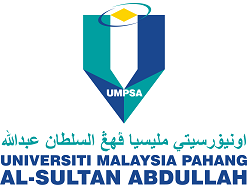Investigation of the relationship between moisture content and density of selected Malaysian biomass
DOI:
https://doi.org/10.15282/jmes.10.2.2016.15.0199Keywords:
biomass, solid fuel, lignocellulosic, renewable & sustainable energyAbstract
Suspended moisture in raw biomass materials is undesired in biomass fuel applications. In commercial and industrial practices, the moisture content in biomass fuel is normally in between 10-20% by weight in order to maximize the heating value of the fuel. Determining the moisture content in biomass materials using the conventional ovendrying method is time consuming. This paper studied the linear relationship between the density and moisture content in several Malaysian lignocellulosic biomass residues from palm oil (oil palm frond, oil palm trunk, oil palm leaf, empty fruit bunch, palm mesocarp fiber and palm kernel shell), rice (rice husk), coconut (coconut frond and shell) and sugar (sugarcane bagasse) industries and their potential function as a tool for moisture determination with reference to their density. The biomass moisture content and density were determined through the oven drying method at 105°C and constant volume weighing at every 1-hour drying interval. All samples showed a linear relationship between moisture content and density, and a linear model for each biomass was constructed. The linear models were cross-validated using a set of measured observations to determine the prediction reliability and accuracy at 95% confidence interval. The cross validation regressions revealed the R2 and adjusted R2 values of above 0.9, while the standard error of regressions was found to be less than 3.1 wt. % of moisture content for all linear models except for that of rice husk, indicating that the linear models are statistically reliable and accurate for moisture content determination using density. The average time of moisture determination using the density-moisture content models was found to be only between 45-60 minutes compared to the conventional drying method that took 24 hours to complete.
References
Koppejan J, Van Loo S. The handbook of biomass combustion and co-firing: Routledge; 2012.
Dahlquist E. Biomass as Energy Source: Resources, Systems and Applications: CRC Press; 2013.
Omer AM. Built environment: Relating the benefits of renewable energy technologies. International Journal of Automotive and Mechanical Engineering. 2012;5:561-75.
Bazmi AA, Zahedi G, Hashim H. Progress and challenges in utilization of palm oil biomass as fuel for decentralized electricity generation. Renewable and Sustainable Energy Reviews. 2011;15:574-83.
Nasrin A, Choo Y, Lim W, Joseph L, Michael S. Briquetting of empty fruit bunch fibre and palm shell using piston press technology. 2010.
Ahmad S, Ab Kadir MZA, Shafie S. Current perspective of the renewable energy development in Malaysia. Renewable and Sustainable Energy Reviews. 2011;15:897-904.
Griffin WM, Michalek J, Matthews HS, Hassan MNA. Availability of biomass residues for co-firing in Peninsular Malaysia: Implications for cost and GHG emissions in the electricity sector. Energies. 2014;7:804-23.
Hagos FY, Aziz ARA, Sulaiman SA. Trends of syngas as a fuel in internal combustion engines. Advances in Mechanical Engineering. 2014;6:401587.
Hasan MM, Rahman MM, Kadirgama K. A review on homogeneous charge compression ignition engine performance using biodiesel-diesel blend as a fuel. International Journal of Automotive and Mechanical Engineering. 2015;11:2199- 211.
Al-Kayiem H, Md Yunus Y. Drying of empty fruit bunches as wasted biomass by hybrid solar–thermal drying technique. Journal of Mechanical Engineering and Sciences. 2013;5:652-61.
Nazirah Z, Ridzuan M, Hafis S, Mohamed A, Azduwin K. Viscosity analysis of empty fruit bunch (EFB) bio oil. Journal of Mechanical Engineering and Sciences. 2013; 5:623-30.
Nasrul H, Umi Fazara MA, Che Zulzikrami Azner A, Razi A. Characterization of bio-oil from palm kernel shell pyrolysis. Journal of Mechanical Engineering and Sciences. 2014; 7: 1134-40.
Sulaiman SA, Razali NHM, Konda RE, Atnaw SM, Moni MNZ. On diversification of feedstock in gasification of oil palm fronds. Journal of Mechanical Engineering and Sciences. 2013; 6:907-15.
Sulaiman SA, Balamohan S, Moni MNZ, Atnaw SM, Mohamed AO. Feasibility study of gasification of oil palm fronds. Journal of Mechanical Engineering and Sciences. 2015;9:1744-57.
Babiker ME, Aziz ARA, Heikal M, Yusup S, Hagos FY. Experimental and simulation study on steam gasification of phoenix-dactylifera date palm seeds.
International Journal of Automotive and Mechanical Engineering. 2016;13:3201- 14.
Muda N, Boosroh MH. Gasification of coal-petcoke blends in a pilot scale gasification plant. International Journal of Automotive and Mechanical Engineering. 2013;8:1457-66.
Azali A, Nasrin A, Choo Y, Adam N, Sapuan S. Development of gasification system fuelled with oil palm fibres and shells. American Journal of Applied Sciences. 2005:72-5.
Guangul F, Sulaiman S, Moni M, Atnaw SM, Konda R. Determination of the equilibrium moisture content of oil palm fronds feedstock for gasification process. Asian Journal of Scientific Research. 2013;6:360.
Sulaiman SA, Guangul FM, Konda RE, Atnaw SM, Moni MN. Estimation of Moisture Content of Oil Palm Fronds through Correlation with Density for the Process of Gasification. BioResources. 2016;11:8941-52.
Moni MNZ, Sulaiman SA. Downdraft Gasification of Oil Palm Frond: A Practical Approach: LAP LAMBERT Academic Publishing; 2012.
Simpson WT. Specific gravity, moisture content, and density relationship for wood: Citeseer; 1993.
Shastri Y, Hansen A, Rodríguez L, Ting K. Engineering and science of biomass feedstock production and provision: Springer; 2014.
Bakar BFA, Tahir PM, Karimi A, Bakar ES, Uyup MKA, Yong Choo AC. Evaluations of some physical properties for oil palm as alternative biomass resources. Wood Material Science & Engineering. 2013;8:119-28.
Abdullah SS, Yusup S. Method for screening of Malaysian biomass based on aggregated matrix for hydrogen production through gasification. Journal of Applied Sciences(Faisalabad). 2010;10:3301-6.
Elneel R, Anwar S, Ariwahjoedi B. Prediction of Heating Values of Oil Palm Fronds from Ultimate Analysis. Journal of Applied Sciences. 2013;13:491.
Mann A, O'Hara IM. Predicting the effects of bagasse depithing operations on boiler combustion performance. Proceedings of the Australian Society of Sugar Cane Technologists 2012. 2012;34.
BTC. Technical backgrounds for advanced techniques and technologies in biomass production. Intelligent Energy Europe: Biomass Trade Center; 2012. p. 164-89.
VanLang C. Hygroscopy: How is the hygroscopicity of a substance determined, chemically? What makes some substances more hygroscopic than others? Quora; 2013.
Early B. Why do some compounds absorb water from air? General Chemistry online. Frostburg, Maryland: Antoine-Frostburg State University; 2015.
Clarke S, Preto F. Biomass densification for energy production: Ontario Ministry of Agriculture, Food and Rural Affairs; 2011.
Ridge R. Fertilizing for high yield and quality of sugarcane. IPP Bulletin: International Potash Institute; 2013. p. 117.
Omoniyi T, Olorunnisola A. Experimental characterisation of bagasse biomass material for energy production. International Journal of Engineering and Technology. 2014;4:582-9.
Downloads
Published
Issue
Section
License
Copyright (c) 2016 The Author(s)

This work is licensed under a Creative Commons Attribution 4.0 International License.





